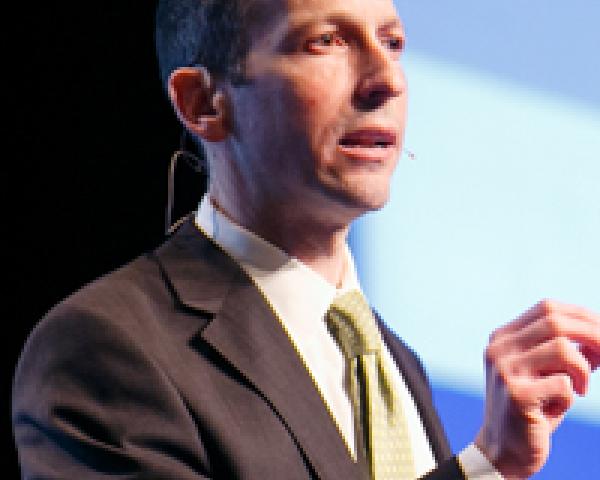
“Net Promoter Score” sure has its share of detractors these days. But those critiquing the measure are overlooking one of its greatest (if not widely discussed) benefits.
Net Promoter Score (NPS for short) was conceived by Fred Reichheld (a Bain & Co. consultant) and introduced to the world in 2003 via his seminal Harvard Business Review article, “The One Number You Need To Grow.”
NPS was heralded by Reichheld and his colleagues as the quintessential metric for gauging customer loyalty across many industries. It was a simple measure yet demonstrated a strong correlation with repeat purchases and referrals and, consequently, business growth.
In recent years, Net Promoter’s popularity has surged, becoming one of the most widely used customer experience measures, used by small businesses and billion-dollar corporations alike.
The “likelihood to recommend” question that’s at the heart of Net Promoter is a now ubiquitous query in customer surveys, and one with which most all consumers are familiar (even if they’ve never heard of NPS).
Net Promoter’s nomenclature – its “Promoter/Passive/Detractor” shorthand for characterizing customer loyalty levels – has become standard vocabulary in the halls of many organizations, not to mention annual reports and earnings presentations.
With greater adoption, however, has come greater scrutiny of Net Promoter. This was perhaps best illustrated by a decidedly mixed review of the measure in a recent Wall Street Journal article (“The Dubious Management Fad Sweeping Corporate America”).
See also: Is ‘Net Promoter’ Really ‘Not Promoter’?
No performance metric is perfect, Net Promoter included. Many critiques of the measure, however, target weaknesses that relate less to the metric itself and more to how organizations have chosen to (incorrectly) implement it.
[If you’re interested in Net Promoter implementation, read this post for 10 Tips to help ensure success.]
But what gets lost in the maelstrom of Net Promoter critiques is the business philosophy Reichheld has long cited as the inspiration behind the metric: the idea that excellence in business comes from “enriching the lives we touch,” be it customers, colleagues, employees or any other stakeholder.
The structure of the Net Promoter scale, and the methodology used to calculate the NPS score, perfectly reflect that philosophy. The goal is not to satisfy those with whom you interact (“Passives” in Net Promoter nomenclature). The goal is to impress them – to create a “Promoter” by delivering an interaction so intensely positive that it all but guarantees people will want to come back for more (and tell others about the experience).
How exactly does one do that? How does one foster such a positive reaction that cultivates intense loyalty?
You guessed it – by enriching the lives of the people with whom you interact. By shaping every interaction, inside or outside the workplace, so people feel better after they’ve encountered you, as compared with before.
This is the true value of properly implemented Net Promoter programs (and one that so many critics – and even some adopters – of NPS overlook). It’s the behavioral guidance that the measure provides. It’s the picture it paints of what “right” looks like. It’s the motivation it delivers to go the extra mile.
The sheer power of that aspect of Net Promoter became clear to me years ago, thanks to a personal lesson delivered by none other than Fred Reichheld himself.
It was 2008, and I was preparing to launch what would become Watermark Consulting, the customer experience (CX) advisory firm I lead today. In an effort to better understand the market for CX consulting services (and whether there was a place for a new entrant), I did what any good entrepreneur does – I networked. I reached out to key people in the industry, seeking their advice and counsel, hoping to learn from those who had tread the path before me.
Most of the people I reached out to never responded (giving me a master class in e-Snubbing). Among the few who did reply was the most renowned luminary whom I had the audacity to contact: Fred Reichheld.
I had divined Reichheld’s Bain & Co. e-mail address, as any good sleuth would, and within 24 hours of my sending him a message, up came his response in my in-box. He hadn’t delegated the reply to someone else; it was clear he had personally written it. He appreciated my inquiry and wrote a couple of paragraphs with suggestions for me – advice that was genuinely helpful.
Here was this celebrity in the study of customer loyalty, a man famous around the world for his thought leadership, and yet he took the time to personally and thoughtfully respond to a message from me – a nobody.
Why on earth would he choose to do that (especially considering I was shunned by so many CX experts who were far less eminent than Reichheld)? It’s because he was walking the Net Promoter talk, trying to enrich the lives of everyone with whom he interacted.
From that day on, I became a “Promoter” of Fred Reichheld – a raving fan, if you will. I’ve never met the man, I’ve never communicated with him since. But what stands out in my memory is the simple kindness that he demonstrated in responding to my inquiry and sharing some helpful advice. The interaction was, in a word, enriching.
See also: How Fine Print Ruins Customer Experience
As Reichheld, the father of NPS, demonstrated so convincingly to me, this is the true value of Net Promoter, and it’s something that gets overshadowed by the endless debates over the accuracy, relevance and predictive power of the measure.
Net Promoter is about orienting an entire organization (and individual behaviors) around the noblest of purposes: to enrich the lives of the people around you.
Who can possibly find fault with that?
You can find this article originally published here.








